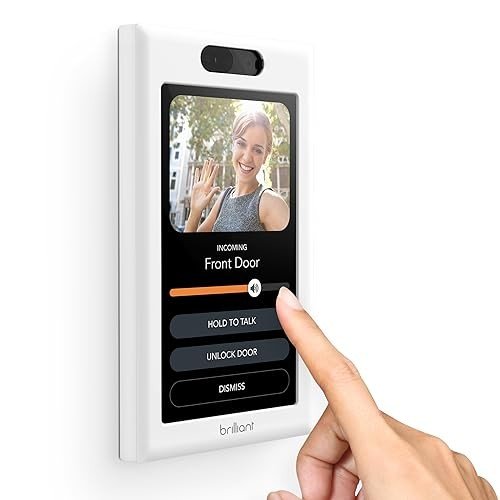Buy Energy-Efficient Lighting in the UK: A Comprehensive Guide
In the last few years, the seriousness of transitioning to more sustainable practices has led lots of customers and businesses to make mindful choices about their energy usage. One of the most impactful ways to decrease energy expenses and carbon emissions is by selecting energy-efficient lighting. This post intends to inform readers about the benefits of energy-efficient lighting, types offered in the UK market, and ideas for making a choice.
Understanding Energy-Efficient Lighting
Energy-efficient lighting refers to source of lights that take in less electrical power while providing the very same level of lighting as traditional lighting choices. This decrease in energy usage comes from improvements in technology, which have actually enabled the creation of lighting services that not only save energy however are likewise more resilient and flexible.
Advantages of Energy-Efficient Lighting
- Cost Savings: Lower energy bills make energy-efficient lighting an appealing alternative for both families and services. They might include a higher preliminary financial investment, however their longevity and lowered energy intake result in considerable savings in time.
- Ecological Impact: By using less electrical power, energy-efficient lights add to decrease greenhouse gas emissions. The shift far from fossil fuels for electricity generation makes a significant distinction in mitigating climate change.
- Improved Light Quality: Modern energy-efficient lighting, especially LED and CFL, offers brighter, more consistent light than older technologies like incandescent bulbs.
Kinds Of Energy-Efficient Lighting
When exploring energy-efficient options, customers can pick from different innovations. Here are some typical types found in the UK:
| Type | Energy Usage | Life-span | Qualities |
|---|---|---|---|
| LED (Light Emitting Diode) | Very low | 15,000 - 50,000 hours | Instant-on, dimmable alternatives readily available, high light quality |
| CFL (Compact Fluorescent Lamp) | Low | 7,000 - 15,000 hours | More energy-efficient than incandescent, but might take some time to reach full brightness |
| Halogen Bulbs | Moderate | 2,000 - 4,000 hours | Improved efficiency compared to traditional incandescent; releases a warm light |
| Smart Bulbs | Varies based on usage | 15,000 hours | Connects to smart home systems; programmable and energy trackers |
This variety welcomes consumers to make informed choices customized to their needs.
How to Choose Energy-Efficient Lighting
Picking the ideal energy-efficient lighting can seem daunting due to the numerous choices readily available. To streamline the decision-making process, prospective purchasers must think about the following aspects:
- Purpose of Lighting: Identify the main use of the lighting (e.g., ambient light, task lighting, or accent lighting) to determine the proper type and strength of light.
- Lumens vs. Watts: Understand that lumens indicate brightness while watts step energy intake. Lighting And Lamps is to optimize lumens while decreasing wattage.
Color Temperature: Lighting is available in numerous color temperature levels, revealed in Kelvin (K). Consider the preferred atmosphere:
- Warm White (2700K) for comfortable locations
- Cool White (4000K) for work spaces
- Daytime (5000K+) for lively settings
- Dimming Capabilities: If picking LED or CFL lighting, ensure that the fixtures and bulbs work with dimmer switches if that is a requirement for the area.
- Certification Labels: Look for energy effectiveness labels such as the Energy Saving Trust label or EU Energy Label, which show compliance with energy use standards.
Where to Buy Energy-Efficient Lighting in the UK
Consumers in the UK can purchase energy-efficient lighting from various merchants. Some popular choices consist of:
- Online Retailers: Websites such as Amazon, eBay, and professional lighting sites frequently have a large selection and competitive costs.
- Home Improvement Stores: Chains like B&Q, Wickes, and Homebase offer in-store assistance for customers to make informed options.
- Electrical Suppliers: Stores that concentrate on electrical items can supply expert advice tailored to particular needs, specifically for commercial purchasers.
FAQs about Energy-Efficient Lighting
Are energy-efficient bulbs actually worth the financial investment?
- Yes, while the upfront expense may be greater compared to traditional bulbs, their longevity and lower energy consumption deal significant savings in the long run.
Do energy-efficient bulbs require time to reach full brightness?
- Some types, like CFLs, might take a couple of minutes to warm up, while LEDs offer immediate brilliant light.
Can I use energy-efficient bulbs in existing fixtures?
- The majority of energy-efficient bulbs can be utilized in basic fixtures, however constantly examine compatibility, specifically with dimmer switches.
What environmental benefits can I anticipate from using energy-efficient lighting?
- Decreased energy consumption results in a lower need for electrical energy, which decreases greenhouse gas emissions, hence having a favorable effect on climate change.
Changing to energy-efficient lighting not just assists to reduce electrical energy expenses however likewise contributes to a greener world. By understanding the types readily available, understanding what to search for when purchasing, and checking out trustworthy suppliers, UK consumers can make knowledgeable decisions that align with their requirements. This little modification can cause considerable benefits for both their home or service and the environment.
Final Thoughts
As consumers become significantly familiar with their environmental footprint, the switch to energy-efficient lighting is a vital action. By welcoming these technologies, people and organizations in the UK enhance their sustainability efforts while delighting in the advantages of modern lighting options.

